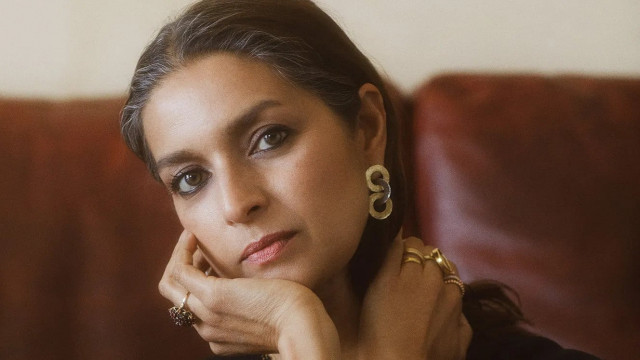Jhumpa Lahiri declines award over keffiyeh ban
Pulitzer Laureate was set to be honoured by NYC's Noguchi Museum

Pulitzer Prize-winning author Jhumpa Lahiri has made headlines for her principled stance against the Noguchi Museum in New York City, announcing her decision to decline the 2024 Isamu Noguchi Award. According to Al Jazeera, this move comes in response to the museum's recent decision to fire three employees for wearing keffiyeh head scarvessymbols of Palestinian solidaritywhile at work.
Founded nearly 40 years ago by renowned Japanese-American designer Isamu Noguchi, the museum issued a controversial updated dress code in August, prohibiting clothing or accessories that convey "political messages, slogans, or symbols" during working hours. This policy has sparked backlash and discussions around freedom of expression and political symbolism in public spaces.
In a statement, the museum acknowledged Lahiri's withdrawal, stating, "Jhumpa Lahiri has chosen to withdraw her acceptance of the 2024 Isamu Noguchi Award in response to our updated dress code policy."
"We respect her perspective and understand that this policy may or may not align with everyone's views." The director of the museum, Amy Hau, further explained in a separate statement on the museum's website, that the dress code policy "is intended to prevent any unintentional alienation of our diverse visitorship, while allowing us to remain focused on our core mission of advancing the understanding and appreciation of Isamu Noguchi's art and legacy."
The keffiyeh, a traditional Middle Eastern scarf, has gained prominence as a symbol of Palestinian resistance, especially amid ongoing global protests against Israel's brutality in Gaza. Supporters of Israel, however, argue that the keffiyeh can signal support for extremism. This debate is intensifying in light of recent incidents, including a shooting in Vermont where two Palestinian students wearing the keffiyeh were targeted.
Lahiri was set to share the stage with Korean-born minimalist artist Lee Ufan at the museum's autumn benefit gala, where Ufan is still expected to receive the award. Winning the Pulitzer Prize in 2000 for her acclaimed collection Interpreter of Maladies, Lahiri has long been an advocate for social justice and human rights.
Earlier this year, she was among thousands of scholars who signed an open letter addressed to university presidents across the United States, expressing solidarity with campus protests against Israel's military actions in Gaza. In the letter, Lahiri and her colleagues described the situation as "unspeakable destruction," highlighting their concern for the humanitarian crisis unfolding in the region.


















COMMENTS
Comments are moderated and generally will be posted if they are on-topic and not abusive.
For more information, please see our Comments FAQ